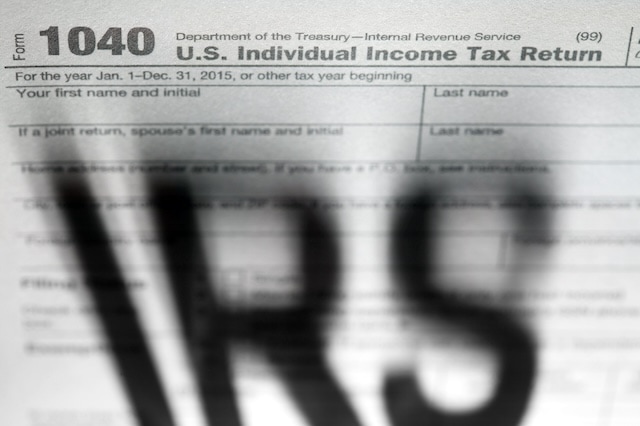Dealing with taxes can be a stressful and time-consuming task, regardless of the complexity of your tax situation.
For those with straightforward cases like a traditional desk job and a W-2 form, tax preparation is more tedious than difficult. It involves setting aside time to gather financial documents, navigate tax software, and ensure accuracy before filing with the Internal Revenue Service (IRS). While not overly time-consuming, it’s an additional task to manage.
In contrast, consider a more complex scenario: juggling multiple 1099s and a W-2, managing investments, passive income, and various business-related deductions. This situation can quickly become overwhelming.
Regardless of your level of comfort, seeking a professional tax preparer’s help could be a smart choice in certain situations. Read on as I highlight key scenarios where seeking out tax professionals is beneficial, from handling multiple income sources to significant life changes. I’ll help you understand when it’s time to seek professional guidance for your tax needs.
Featured Financial Products
Table of Contents
What Is a Tax Professional?

A tax professional is a qualified expert who specializes in preparing and filing taxes, and providing advice on tax-related matters. They can assist individuals and businesses in navigating complex tax laws, ensuring compliance, and maximizing deductions and credits. Examples include Certified Public Accountants (CPAs), enrolled agents (EAs), and tax attorneys.
YATI Tip: When looking to work with a tax preparer, make sure you check their Preparer Tax Identification Number (PTIN) for any previous infractions, misconduct, or other concerning activity.
3 Types of Tax Professionals
Certified Public Accountant (CPAs)
- Qualifications: CPAs are licensed by state boards and have passed the Uniform CPA Examination. They are knowledgeable in accounting and tax laws.
- Services: CPAs offer a wide range of services, including tax preparation, financial planning, and audit services. They are well-equipped to handle complex tax situations and provide in-depth financial advice.
- Ideal for: Individuals and businesses needing comprehensive tax and financial services, especially those with complex tax situations.
Enrolled Agent (EAs)
- Qualifications: EAs are federally licensed tax practitioners who have passed a comprehensive IRS test covering individual and business tax returns. They can also be former IRS employees.
- Services: Specializing in tax matters, EAs can represent taxpayers before the IRS for audits, collections, and appeals. They are experts in tax preparation and planning.
- Ideal for: Taxpayers seeking expert assistance in tax preparation and representation before the IRS, particularly in audits and appeals.
Tax Attorney
- Qualifications: Tax attorneys are lawyers with a law degree and a state bar license. They often specialize in tax law and have additional training or experience in tax-related matters.
- Services: Tax attorneys often specialize in tax law and have additional training or experience in tax-related matters.
- Ideal for: Tax attorneys provide legal advice on complex tax issues, estate planning, and can represent clients in tax court. They are equipped to handle legal tax disputes and complicated tax situations.
Should You Hire a Professional Tax Preparer or DIY Your Taxes?
Approaching taxes doesn’t have to be daunting—rather, it’s all about planning ahead and finding the right approach for you, whether that’s the DIY method or seeking a tax professional’s assistance. And remember: Even if you’re experienced, there are nuances in maximizing tax credits, deductions, or exclusions that you might not be fully aware of—and the goal is to avoid mistakes.
The decision to use tax preparation software or hire a professional boils down to your comfort level with handling taxes yourself. Quality tax software like TurboTax or H&R Block can guide you effectively through the process. But don’t hesitate to seek out help from paid tax preparers if complexities arise.
Tax professionals offer valuable assistance, easing the burden of tax filing, particularly for self-employed individuals, those experiencing major life events like marriage or divorce, or anyone facing complex tax situations. However, the cost of hiring a tax preparer can be a deterrent for those aiming to optimize their returns without incurring additional expenses.
Continue reading to explore the circumstances when it makes sense to seek out help from professional tax preparers and determine whether hiring one is the right move for your 2024 tax return.
Related: Do You Have to File Taxes This Year?
1. If You Earned Income From a Side Hustle or Freelancing

In today’s economy, it’s increasingly common for people to seek work outside of a traditional W-2 job—that is, working as an employee. Blame it on hustle culture, a need to get ahead, or shifting cultural attitudes, but the truth remains: More people are in the gig economy than ever before. The 2023 edition of Upwork’s Freelance Forward report found that 39% of Americans did some type of freelance work in 2023, up 3 percentage points from 2021.
And while freelancing often means bringing in more income, it can also represent more complications come tax season. That’s because freelancers often have business-related expenses they’ll want to deduct on their income tax return. While some might be straightforward, others might entail some additional legwork on your part. That means either handling the calculations yourself, tapping a commercial tax software, or possibly looking to a tax pro to navigate the situation for you.
And while hiring a professional might seem overdone for only choosing to pursue a minor freelancing opportunity or side hustle, it could still be a good idea for directional guidance. Many deductions exist for businesses and may go unclaimed if not accounted for properly on a tax return. As with most things, sometimes having a person-to-person interaction can make a situation run much smoother.
Related: 30 Tax Statistics and Facts That Might Surprise You
2. If You Have a Significant Portfolio of Investments

Investments held in perpetuity often require little maintenance beyond accounting for any dividends or capital gains distributions. However, taxpayers with significant investment portfolios of both traditional and alternative investments can still benefit from seeing a tax expert. This counts for both beginner investors and experts alike.
The biggest such benefit comes with respect to tax planning, which occurs throughout the year. By working with a CPA who operates proactively throughout the year, you can receive the most benefit come tax time. For example, they might assist with tax-loss harvesting, a technique that uses capital losses realized when selling assets that have gone down in value while you held them to offset capital gains recognized when you sell an asset for a gain.
A CPA can help with other tax-related investing decisions. For instance, investing apps for minors can result in tax liabilities to you if your account made trades in a taxable custodial account. If your teenager is starting to invest, handling this might be a challenge; the help of a tax professional could make your life easier.
Related: What Is the Kiddie Tax? How Much Is It, How Does It Work?
3. If You Own + Rent Property

Rental properties act as a great tool for building wealth because they offer two types of returns:
- capital gains from appreciation
- income from tenants
These two returns have different tax advantages due to all the deductions that come with investing in property. For instance, you can gain a tax advantage on gains from a property you’ve sold by transferring those gains to another property through a Section 1031 Exchange. And deductions such as MACRS depreciation, landlord insurance, and marketing expenses can shield your rental income from Uncle Sam.
In both cases, seeking the help of a tax professional could help you better manage the expenses and planning related to owning, maintaining, and eventually disposing of the property. If planned appropriately, a skilled tax pro can save you a significant amount of money in taxes.
Related: Best Accounting Software for Rental Properties [Free + Paid]
Featured Financial Products
4. If You’ve Flipped a Fixer-Upper Property (For a Profit)

If you’ve moved beyond the rental phase of your property and decided to dispose of it, you’ll want to consider hiring a tax professional to navigate your next steps.
If you’re flipping a piece of real estate, and not redeploying the money into a new rental property, you’ll want to get these details right because making a misstep could cost you considerably in taxes on your gains. Every dollar put into the property must be tracked and accounted for properly. Doing so will help with minimizing any tax bill you’d face when reporting the gain on your income tax return.
When assessing the tax implications of this transaction, it might appear straightforward on the surface. “We paid $X, invested $Y and sold it for $Z.” But in reality, the number of transactions tied up in this financial decision creates a need for close attention to detail.
If you’re selling the property with the intent of buying another, you’ll want to know the ins and outs of Section 1031 Exchanges—a powerful tax provision that helps landlords transfer gains from one property to another without taking a tax hit.
Either way, handing this difficulty over to a tax professional might prove beneficial to ensure you make the maximum return possible on your real estate investment.
Related: 9 Best Real Estate Crowdfunding Sites + Platforms
5. If You and/or Your Spouse Have Student Loans

In few circumstances does it make sense to file separately as married taxpayers, as this usually results in losing access to the full benefit of nearly all the tax deductions joint filers have. Plus, you generally are put into more favorable tax brackets compared to single filers (though high-earners can get hit with the marriage penalty).
However, even though it might not always serve as the best tax solution, some narrow instances exist where filing separately makes sense. In particular, one of the most oft-cited reasons deals with student loans and how you go about repaying them.
Taxpayers who financed their education with federal student loans might be eligible to participate in an income-based repayment plan like those used in the Public Service Loan Forgiveness program. These repayment plans base your monthly payment amount on your annual income (adjusted gross income, to be specific), and, under some circumstances, your unpaid student loan balance could qualify for forgiveness after a certain number of years.
As a result, filing separately could artificially lower your income in the eyes of loan forgiveness programs and the amount you need to repay each month. Before proceeding down the path of filing separately, however, sit down with a tax preparer to identify the tax impact.
Related: Student Loan Interest Deduction: How Much, Eligibility + More
6. If You Have Experienced a Life Change [Such as a Move or Divorce]

Life has many turns, whether that includes moving cross-country, a change in family status from tying the knot (or breaking it), or welcoming a new child to the family. Because of any of these events, you want to prepare accordingly from a tax perspective.
Undoubtedly, the number of events affecting your filing status and claims never end. As a result, navigating these changes might not always seem so straightforward. Choosing to outsource this decision-making to a professional could make any tax benefits work to your advantage. Further, this could also utilize other tax strategies to minimize your tax liability.
As discussed above, marrying comes with more tax benefits (as compared to filing as a single taxpayer). Regarding divorce: Changes occurred under tax reform affecting the deductibility of alimony paid. New rules allow a person making qualified alimony payments to deduct them against taxable income while alimony payments received by the former spouse become taxable and therefore must figure into the recipient’s income.
Regardless of the situation, any major changes in your life might come paired with new tax circumstances. Meeting with a tax preparer could save money, stress, and time.
Related: How Are Social Security Benefits Taxed?
7. If You Worked In Multiple States

Similar to moving across state lines, you might have worked a job, owned a business, or freelanced in multiple states throughout the year.
The reasons for these varied work geographies can result from a move, your work relocating you either temporarily or permanently, or perhaps even from maintaining a regular travel schedule that keeps you working on the road. Regardless of rationale, working in multiple states for extended periods of time can still result in tax liability in those different states.
Commonly, professional athletes must file multiple state-level returns. Even though they may have played only a handful of games in a particular state, those taxes could be meaningful. (Example: 3 days / 365 days per year * 5% [assumed effective state tax rate] * $20,000,000 salary = $8,219 in state income tax paid.)
OK. You’re probably not a professional athlete. But you still might have worked in different states and face tax liability in each. As a result, your circumstances can quickly result in a complicated return preparation. Depending on the level of effort, you might consider passing the hassle off to a tax professional.
Related: Tax Preparation Checklist [Get Your Tax Documents In Order]
8. If You Have Had Tax Issues in the Past

Sometimes the best choice involves not making the same mistake twice. If the IRS has previously chosen to audit your tax return for accuracy, you have a higher likelihood of receiving another scrutinizing eye from Uncle Sam.
If you have found yourself in such a situation, whether audited or the recipient of a notice, having a tax professional in your corner might prove useful.
Related: American Opportunity Tax Credit: Eligibility, Amount + More
9. If You Adopted a Child

Understanding the importance of welcoming a new child into a stable environment, both the IRS and many states offer favorable tax benefits for adopting a child. Because this represents a major decision, consider consulting a tax professional beforehand to ensure you have taken advantage of the adoption tax credit properly.
Take special note that in circumstances when a taxpayer claims a refundable tax credit like the adoption tax credit or earned income tax credit and it triggers a refund, the IRS wants to keep close tabs on this election. (And in general, when a tax position taken by a taxpayer results in a cash outlay from Uncle Sam, the scrutiny from the IRS will increase, thus posing a significantly higher audit risk, all things equal.)
Related: Does My Child Have to File a Tax Return?
10. If Your Income Is in the 1%

“More money, more problems.” If you have a high income, you become a bigger target for everyone—marketers, moochers, and most importantly, Uncle Sam.
High-income earners represent an opportunity to get more bang for the government’s buck with an audit because more money is at risk. Just consider the 80/20 rule, which says that 20% of the population would pay 80% of the taxes. While that’s an approximation, it would make sense that the IRS would spend a great deal of time meticulously reviewing the returns of the nation’s highest earners. Further, high income earners understand the value of hiring a tax professional because they can claim many lucrative tax breaks. However, in claiming such positions, the IRS will demand justification of potentially aggressive tax decisions.
All things equal, you can expect as your income rises, so too does the scrutiny from the IRS to make sure they will not be short changed on their tax payments.
Related: 8 Best Stock Portfolio Tracking Apps [Stock Portfolio Trackers]
Featured Financial Products
11. If You Have Sold Stock Via Stock Options Through Your Employer

In circumstances where you sold stock through stock options with your employer, you’ll want to ensure the cost basis reported on your Form 1099 is accurate. You’ll need to understand the type of stock option, either an incentive stock option or a nonqualified stock option, and the tax implications of exercising them.
One of the common issues you’ll see with stock options is that you’ll receive a 1099 from the brokerage you used to exercise the options with the basis being reported as zero. If the form shows no basis in the shares you obtained from exercising your stock options, that’s often incorrect. You’ll need to work with the brokerage to secure a supplemental statement with the correct information.
An additional problem comes from underwithholding. Oftentimes, an employer will default your withholding amount to a flat 22%, the amount applied to supplemental wages by default, but you actually belong to a higher tax bracket. If you failed to withhold enough money in taxes on the transaction, you might face a significant tax liability.
Tax professionals should be able to assist with these and other issues pertaining to selling your company’s stock.
Related: 11 Best Stock Trading Apps [Free + Paid]
12. If You Installed a Solar Energy System

Solar energy continues to grow in popularity. And as new systems go up, so too do the number of taxpayers claiming the solar energy investment tax credit—a lucrative credit meant to refund up to 30% of the solar system’s installed costs.
Because what counts as a qualified installed cost matters, seeking the help of a tax professional could result in a lower tax liability.
Related: 7 Best Wealth + Net Worth Tracker Apps [View All Your Assets]
13. If You Have Any Foreign Assets

Don’t like dealing with taxes in the United States? Well, adding the complexity of a foreign country’s tax laws won’t make matters any less stressful.
If you hold foreign assets (e.g., bank accounts, retirement accounts, foreign-held investments, a condo abroad, etc.), you might want to consult a tax professional to determine what you should report to the IRS.
In recent years, the government has developed a heightened interest in such assets as they examine taxpayer decisions to offshore their assets and evade taxation. And those who get caught can expect steep penalties.
I say: Why risk it? Play it safe and talk to a tax pro.
Related: 17 Best Stock Research & Analysis Apps, Tools and Sites
14. If You Want to Save Time

Life offers many joys and often not enough time to enjoy them. Why let tax prep act as one of those deterrents? What little time you do have for pursuing interests should not go wasted doing something you do not enjoy. I’m guessing you’d rather spend time with friends and family, or doing something else you enjoy—and that “something else” is statistically unlikely to be “preparing a tax return.”
As a result, hiring a tax professional may make for a better use of your time and money. The tax pro should handle your taxes adequately and minimize your tax liability within the confines of law. For your part, you likely only need to upload necessary tax documentation—the tax pro will handle the rest.
15. If You Want Peace Of Mind

Peace of mind should act as a primary driver for preparing your tax return.
If reviewing tax code interpretations, deciphering Section 1231 from 1245 and 1250 property gains, or understanding the new limits to the Section 179 deduction doesn’t sound like fun, you might consider hiring a tax pro. Even if it does sound like fun, though, if you’re worried that you might screw up the numbers and trigger a visit from Uncle Sam, a tax pro can provide the peace of mind that comes with an accurate tax return.
Featured Financial Products





![Top 8 Banking Apps for Teens + Kids [Start Banking Young] 34 best taxable brokerage accounts for parents and teens](https://wealthup.com/wp-content/uploads/best-taxable-brokerage-accounts-for-parents-and-teens-600x403.webp)
![9 Best Roth IRAs [2025 Picks] 35 individual retirement account ira 1200](https://wealthup.com/wp-content/uploads/individual-retirement-account-ira-1200-600x403.webp)

